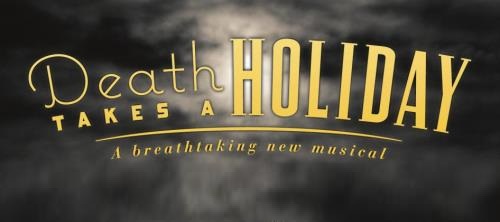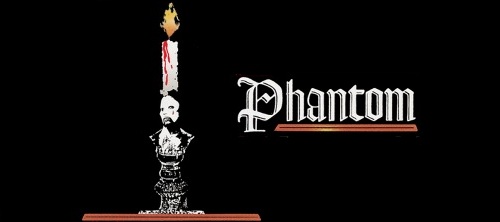Pas de biographie disponible.
Compositeur Musique additionelle Librettiste Parolier Metteur en scène Chorégraphe Producteur création Producteur version

Musical
Musique: George Forrest • Maury Yeston • Robert Wright • Paroles: George Forrest • Maury Yeston • Robert Wright • Livret: Luther Davis • Production originale: 6 versions mentionnées
Dispo: Synopsis Génèse Liste chansons
Genèse: While it's true that most musicals take a long time to get to Broadway, GRAND HOTEL's journey was particularly long--almost 30 years! Menschen im Hotel marked the beginning of the career of popular Austrian novelist Vicki Baum in 1929. She dramatized the novel for the Berlin stage later in the same year. The play became a hit, and its English-language adaptation enjoyed success in New York in the early 1930s and was made in to the blockbuster 1932 Academy Award-winning film, Grand Hotel, starring John Barrymore, Greta Garbo and Joan Crawford. At the Grand Davis, Wright, and Forrest first adapted Baum's story in 1958 under the title At the Grand, changing the setting from 1928 Berlin to contemporary Rome and transforming the ballerina into an opera singer closely resembling Maria Callas to accommodate Joan Diener, who was scheduled to star under the direction of her husband Albert Marre. All of them had collaborated on the earlier musical Kismet and anticipated another success, but Davis' book strayed too far from the story familiar to fans of the film. When Paul Muni agreed to portray Kringelein, the role was changed and expanded, with the character becoming a lowly hotel employee whose stay in a hotel suite is kept secret from the management. Flaemmchen became a dancing soubrette, Preysing and his dramatic story line were eliminated completely, and two deported American gangsters were added for comic relief. At the Grand opened to mixed reviews and good business in Los Angeles and San Francisco, but when an unhappy Muni refused to extend his preliminary contract and left the production, producer Edwin Lester decided to cancel the Broadway opening scheduled for September 25, 1958, and everyone moved on to other projects. Grand Hotel Three decades later, Davis, Wright, and Forrest decided to dust off their original material and give the show another try. This time it was placed in the hands of director/choreographer Tommy Tune, who envisioned it as a two-hour, non-stop production comprising dialogue scenes, musical numbers, and dance routines overlapping and at times competing with each other, thereby capturing the mood of a bustling hotel where something is happening at all times. Seven songs from At the Grand were incorporated into what was now called Grand Hotel, although two were dropped during the Boston tryout. The creative team proved to be too attached to the original material and resisted every change that Tune proposed. "Bluntly stated, the show didn’t work. With the exception of the choreography and the physical trappings, the show was deadly," Tune recalled in his memoir Footnotes. Frustrated, he finally fired Wright and Forrest and brought in Maury Yeston in 1989, with whom he had worked in Nine, to compose six new songs and revise others (including rewriting over half the lyrics in the show). He also hired Peter Stone to doctor Davis' book, although Stone refused official credit for his work. Tune later commented, "I hate it when it gets ugly on a show. It always does though, and you've gotta be hearty to survive. If it's not the writers, then it's the producers or the cast. There is always turmoil, but if you're lucky some good can come of it all. I have always tried to be kind to everyone, but please don’t mistake my kindness for weakness." Broadway and subsequent productions After thirty-one previews, Grand Hotel opened on November 12, 1989 at the Martin Beck Theatre, and later transferred to the George Gershwin to complete its total run of 1,017 performances. The show is played without an intermission. The original cast included Liliane Montevecchi as Elizaveta Grushinskaya, Michael Jeter as Otto Kringelein (garnering much praise and several awards), David Carroll as the Baron, Timothy Jerome as Preysing, John Wylie as Otternschlag, Bob Stillman as Erik, and Jane Krakowski as Flaemmchen. Replacements later in the run included Cyd Charisse (in her Broadway debut at age 70) and Zina Bethune as Elizaveta, Austin Pendleton and Chip Zien as Otto, and John Schneider, Rex Smith, and Brent Barrett as the Baron. The production captured 12 Tony nominations, winning five awards, including best direction and choreography for Tommy Tune. The release of the much in-demand original cast recording was delayed nearly two years due to legal disputes with Wright and Forrest. By the time the situation was resolved, Carroll was seriously ill with AIDS, and died from a pulmonary embolism while in the bathroom of the recording studio early in the session. Brent Barrett, who had appeared as the Baron both on Broadway and in the national tour, sang the role for the cast album released by RCA Victor. As an homage to Carroll the cast album features a bonus track of his performance during a 1991 cabaret fundraiser for Equity Fights AIDS, singing the Baron's major song, "Love Can't Happen". The first West End production opened on July 6, 1992 at the Dominion Theatre, where it ran for slightly less than four months. In 2004, Mary Elizabeth Mastrantonio starred as Elizaveta in a small-scale production directed by Michael Grandage at the Donmar Warehouse.
Résumé:
Création: 12/11/1989 - Al Hirschfeld Theatre (Broadway) - représ.

Musical
Musique: Maury Yeston • Paroles: Maury Yeston • Livret: Peter Stone • Production originale: 5 versions mentionnées
Dispo: Résumé
Genèse:
Résumé: Barrett is a stoker aboard the Titanic who proposes marriage via telegraph. Murdoch, the ship's officer, contemplates the responsibility of command while Kate McGowan and the Third Class passengers yearn for a better life in America. Chief Steward Etches and the millionaires he serves, exult in the wonders of their world and a Second Class passenger Alice Beane, a hardware store owner's wife, wants more out of life.
Création: 23/4/1997 - Lunt-Fontanne Theatre (Broadway) - représ.

Musical
Musique: Maury Yeston • Paroles: Maury Yeston • Livret: Peter Stone • Thomas Meehan • Production originale: 2 versions mentionnées
Dispo: Résumé Synopsis Génèse Liste chansons
Genèse: Death Takes a Holiday premiered Off-Broadway at the Laura Pels Theatre on June 10, 2011 (in previews) and officially on July 14, for a limited run through September 4, 2011 in a production by Roundabout Theatre Company. The musical was directed by Doug Hughes, with choreography by Peter Pucci, set design by Derek McLane, and costumes by Catherine Zuber. The cast included Linda Balgord (Contessa Danielli), Matt Cavenaugh (Major Fenton), Mara Davi (Alice), Kevin Earley (Death/Sirki), Simon Jones, Rebecca Luker (Duchess Stephanie), Jill Paice (Grazia), Michael Siberry (Duke Vittorio Lamberti), Alexandra Socha, Don Stephenson, Joy Hermalyn and Max von Essen (Corrado Montelli). Jim Walton was an understudy. The show received mixed reviews. The New York Times called it a "gorgeously sung but fusty musical". Similarly, Steven Suskin, in reviewing the original cast album, wrote that "Maury Yeston has given us a liltingly romantic and lovely operetta-like score. ... Book and score do not complement each other, at least not as presented at the Pels. ... The entire show – not only on the CD but in the theatre – was lifted by the presence of a fine group of singing actors." Time magazine, on the other hand, ranked the show among the best of the year and commented on the brief run: "Death deserved to live on." The show received eleven nominations for 2011–12 Drama Desk Awards, although it did not win any. The production garnered unexpected publicity when its original leading man, British actor Julian Ovenden, left the show due to vocal trouble and was replaced by his understudy, Kevin Earley. Ovenden's performance had been well-reviewed, but Earley also garnered acclaim in the role.[citation needed] The original cast recording was released in October 2011, by PS Classics, with Earley in the role of Death.
Résumé: In Northern Italy, shortly after World War One, Death disguises himself as a handsome young prince to try to understand why life is so precious and death so feared. But when he unexpectedly falls in love with a newly engaged young woman, this mysterious stranger discovers that love may in fact be stronger than death.
Création: 21/7/2011 - Laura Pels Theatre (Broadway (Off)) - représ.

.png)
.png)





